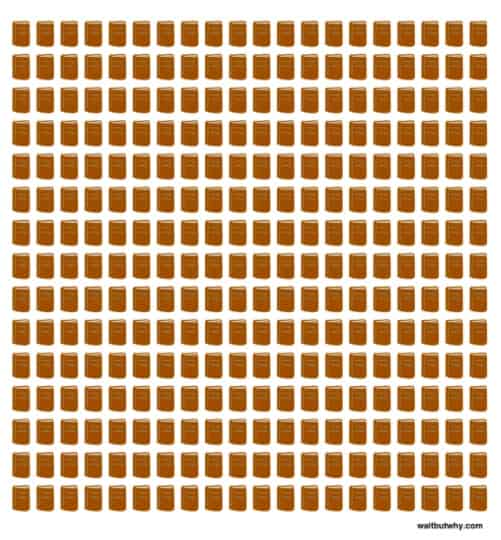A recent Zen Habits excerpt by Leo Babauta inspired this post:
- “It’s something most of us deal with every day, often without realizing it’s there: a feeling of time scarcity. We know it well: the feeling of having too much to do and not enough time to do it all. This is true not only of work — where we have too many projects, meetings, emails, admin tasks, calls, requests, messages — but also of our personal lives. We want to exercise, eat well, meditate, learn something cool, travel, go out with friends, spend time in solitude, go for hikes, read a million books, take care of finances and errands, keep up with podcasts and news and interesting online content and our loved ones on social networks and fascinating people on social media, while finding space for contemplation and quiet. Whew.” — Leo Babauta¹

The Ultimate Life Hack is Understanding you can’t do ALL the Life Hacks (& that’s Perfectly OK)
Life Hacks & Time Scarcity
There’s definitely a trend (or obsession) these days around life hacks, life optimization, productivity, efficiency, you name it.
More often than not, you hear people talk about optimizing your time by eliminating things that are wastes of time or bad for you.
- Do this (because it’s good for you) and not that (because it’s bad for you).
- Do less of something so you can do more of what you love.
- Or, do things more efficiently to free up more time for the things that are important to you.
But, what happens when you’ve already hacked and optimized everything? Do you then optimize the optimizations?
Do you life hack the life hacks?
Leo Babauta calls out a lot of good things above: exercising, eating well, meditating, learning, reading, traveling, socializing, and finding space for solitude.
But, just like bad things, there must a limit on the number of good things you can have in your life. After all, there are still only 24 hours in a day, and no amount of life hacking changes that.
Just like everything else in life, life hacks are about balance.
Even good things like reading and learning have limits. Tim Urban of Wait But Why does a brilliant job of helping you visualize your life:
- “Not counting Wait But Why research, I read about five books a year, so even though it feels like I’ll read an endless number of books in the future, I actually have to choose only 300 of all the books out there to read and accept that I’ll sign off for eternity without knowing what goes on in all the rest.” — Tim Urban²

Some things shouldn’t be life hacked at all.
Ryan Holiday calls this out in relation to the myth of speed reading:
- “No one tries to have sex faster. Or wants to meditate more efficiently. No one tries to rush a baby out in less than nine months. Reading is supposed to be enjoyable, it’s supposed to take time, insufficient gestation is dangerous. It’s the thing you’re rushing to, not through.” — Ryan Holiday³
5 Ways to Get Started:
1. Knowing who you are and what’s important to you is step one:
- “What’s important now? After a moment of reflection I realized that until I knew what was important right now, what was important right now was to figure out what was important right now!” — Greg McKeown, Essentialism (Book Summary)
2. Maybe you even want to create a life purpose.
3. You can then identify and prioritize your life roles to keep you on track.
4. Just remember you have choices.
5. Give yourself permission to make edits along the way—take your lifestyle design one day at a time.
Sources & Footnotes:
1. https://zenhabits.net/scarcity/
2. https://waitbutwhy.com/2015/12/the-tail-end.html
3. https://thoughtcatalog.com/ryan-holiday/2015/05/how-to-learn-the-art-of-speed-reading/




